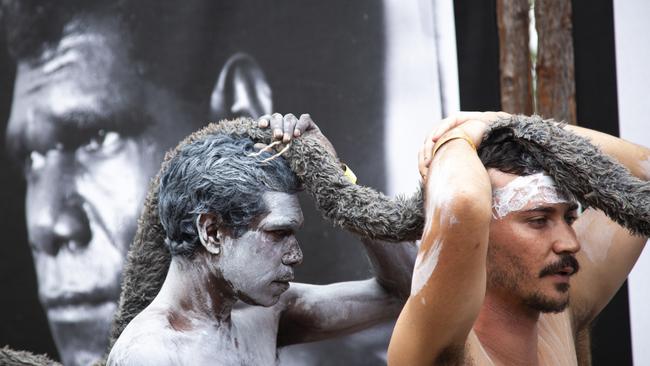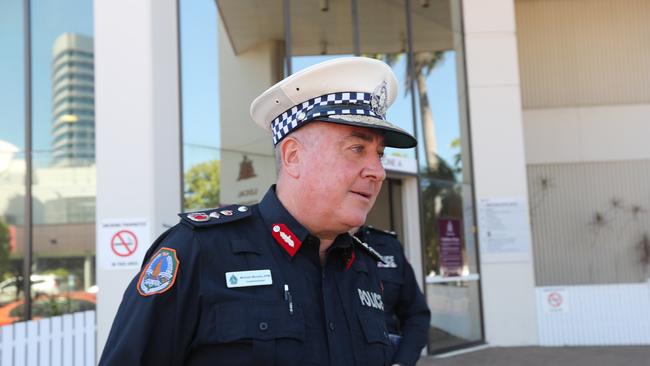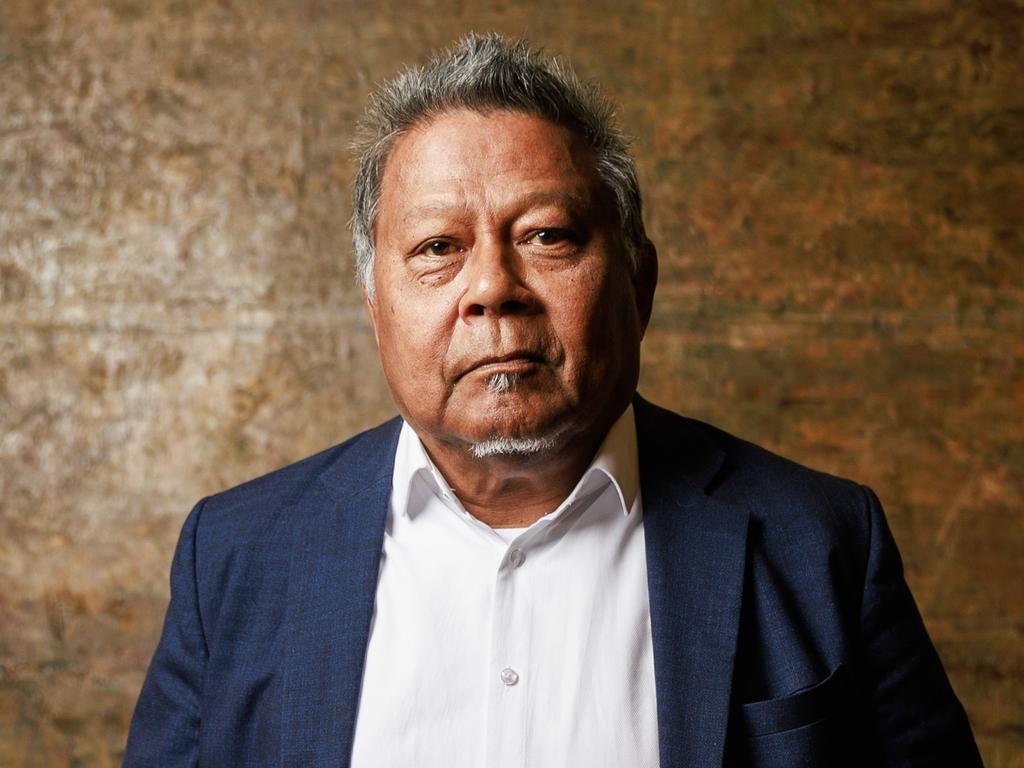‘Deeply sorry’: NT’s police chief Michael Murphy apologises for force’s past wrongs
Northern Territory Police Commissioner Michael Murphy has apologised to Aboriginal people of the territory for ‘harms and injustices’ inflicted on them by police.

Northern Territory Police Commissioner Michael Murphy has apologised to Aboriginal people of the territory for hurt inflicted on them by police.
Mr Murphy delivered a lengthy apology to Indigenous people at a ceremony on the Bungul ground at the Garma Festival in northeast Arnhem Land on Saturday, six months after racism inside NT Police was exposed at the inquest of Yuendumu teen Kumamjayi Walker.
Former police officer Zachary Rolfe, who was acquitted on all charges after shooting Walker dead while trying to arrest him in 2019, admitted at the inquest he had used the word “coon’’ in text messages and that said that racism in the NT police had “rubbed off on me”.
Mr Rolfe then revealed the NT police force’s most elite unit had a tradition of handing out racist awards for fun at Christmas.
This included racist imagery and phrases such as “for the most COON like BBQ ever!!!”
On Saturday, senior Yolngu woman Djalinda Ulamari introduced Mr Murphy to the crowd at Garma and said: “He’s come to apologise for the wrongs and what they have done”.
“He’s here to say how sorry they are and what we can do to find a way to move forward together,” she said.
Mr Murphy was flanked by some of his most senior colleagues including Central Arrernte woman Leanne Liddle, a former director of the NT’s Aboriginal Justice Agreement who has been hired by police to oversee anti-racism measures, as he spoke.

“I am deeply sorry to all Aboriginal Territorians, for the past harms and the injustices caused by members of the Northern Territory Police,” he said.
“Throughout our 154 years of policing in the Northern Territory, we have aimed to work effectively with Aboriginal people and deliver just outcomes.
“However, we acknowledge that we have made mistakes.
“I commit the NT Police service to do the hard work to transform our relationship with Aboriginal Territorians for a safer community for all.”
Mr Murphy also pledged to transform the NT Police with an anti-racism strategy. Ultimately, he said, 30 per cent of the NT Police workforce would be Indigenous.
In 2023, Victoria chief police commissioner Shane Patton apologised for past and present actions of the force that inflicted trauma on First Nations people.
In 2018, then West Australian Police commissioner Chris Dawson – now the state’s governor – said sorry to Aboriginal and Torres Strait Islander people on behalf of the WA Police Force “for our participation in past wrongful actions that have caused immeasurable pain and suffering”.
State and territory governments used police to forcefully remove Aboriginal children from their parents as part is assimilationist policies.
“The forceful removal of Aboriginal and Torres Strait Islander children from their families and communities, the displacement of mothers and their children, sisters, fathers and brothers, the loss of family and resulting destruction of culture has had grave impacts,” Mr Dawson said during his apology to the Aboriginal people of WA.
On Saturday Mr Murphy also described how NT Police took children from their families and the role of police in a series of historical events.
NT Police were required by the earliest legislation to protect all Territorians including Aboriginal people “but they did not fulfil this responsibility”.
Instead, he said, they felt duty bound to protect settlers and their property when Aboriginal people resisted incursions.
“Some members of the police force may lack awareness of the profound ongoing intergenerational impacts of this history,” he said.
Mr Murphy’s lengthy apology included an announcement that police had opened a cold case review into the death of a released Aboriginal prisoner in 1933.
Dhakiyarr Wirrpanda was accused of spearing Constable Stewart McColl. Wirrpanda’s conviction was quashed by the High Court and on his release he vanished.
There was a strong suspicion that on his release he was murdered by McColl’s colleagues.
Mr Murphy then discussed the role of police in the NT intervention.
“In 2007, the federal government of the day enacted a set of legislation that required the suspension of the Racial Discrimination Act 1975. The new laws applied to 77 remote communities across the Northern Territory and banned alcohol sales and consumption, gambling, pornography, introduced the Basics card that quarantined welfare payments, abolished the Community Development Employment Program (work for the dole), and compulsorily acquired community assets,” he said.
“The Intervention also increased police presence on communities to enforce those restrictions and reduced customary laws and cultural practices.
“Some Aboriginal people appreciated the police presence in their communities and the introduction of the Basics card that reduced ‘humbugging’ of vulnerable people particularly the elderly and pensioners.
“But many other Aboriginal people viewed these measures as racist and reminiscent of the old Protection era.
“This history and more recent events highlight two things,” he said.
“One, police are routinely tasked with enforcing policies, laws and regulations, both federal and here in the Northern Territory, that are often influenced by media coverage of crime, victims and community safety, regardless of the data, evidence and expert advice; and (two) at times, police officers have abused their powers or fall short in their duty of care towards Aboriginal offenders, witnesses and victims of crime.”






To join the conversation, please log in. Don't have an account? Register
Join the conversation, you are commenting as Logout